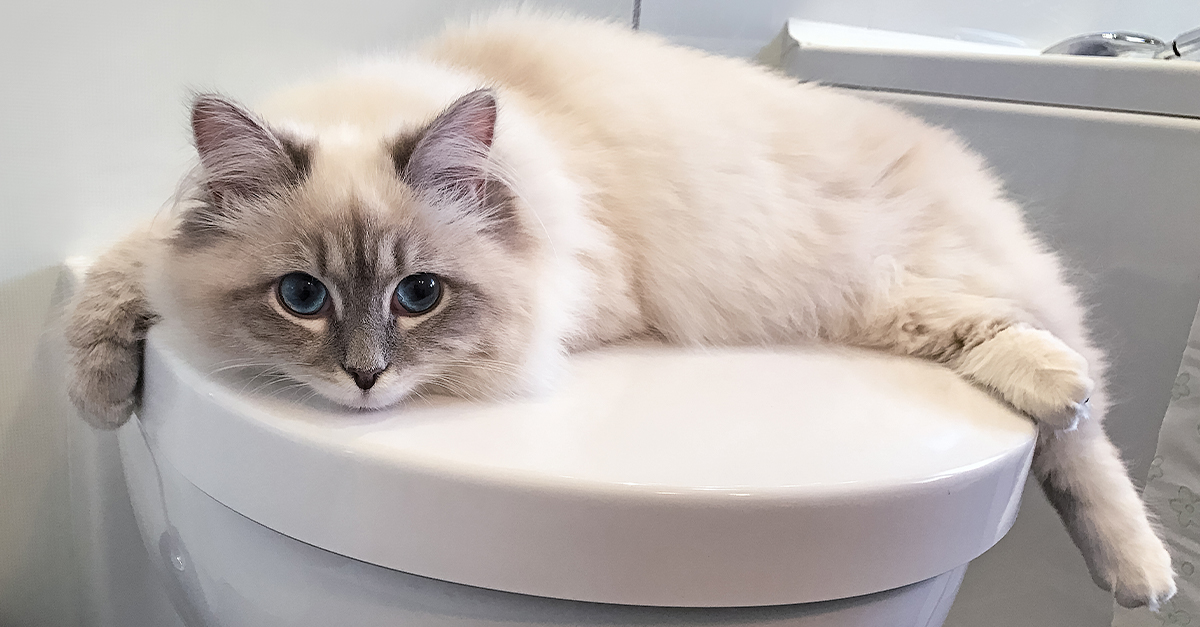Hazards of Flushing Cat Poop Down Your Toilet - Prevent Possible Issues
Hazards of Flushing Cat Poop Down Your Toilet - Prevent Possible Issues
Blog Article
Nearly everybody seems to have their own individual rationale when it comes to How to Dispose of Cat Poop and Litter Without Plastic Bags.

Intro
As cat owners, it's important to be mindful of exactly how we get rid of our feline good friends' waste. While it might appear hassle-free to flush feline poop down the bathroom, this technique can have damaging consequences for both the setting and human health and wellness.
Alternatives to Flushing
The good news is, there are more secure and a lot more liable means to deal with pet cat poop. Think about the following choices:
1. Scoop and Dispose in Trash
The most typical approach of throwing away cat poop is to scoop it into an eco-friendly bag and throw it in the trash. Make sure to make use of a devoted trash inside story and dispose of the waste quickly.
2. Use Biodegradable Litter
Select eco-friendly pet cat litter made from materials such as corn or wheat. These litters are environmentally friendly and can be safely gotten rid of in the trash.
3. Bury in the Yard
If you have a yard, consider hiding pet cat waste in a marked area away from vegetable yards and water resources. Be sure to dig deep enough to stop contamination of groundwater.
4. Set Up a Pet Waste Disposal System
Invest in a pet garbage disposal system particularly designed for pet cat waste. These systems make use of enzymes to break down the waste, minimizing smell and environmental effect.
Health and wellness Risks
In addition to environmental concerns, purging feline waste can also pose health and wellness dangers to humans. Cat feces might have Toxoplasma gondii, a parasite that can cause toxoplasmosis-- a possibly serious illness, particularly for expecting ladies and individuals with weakened body immune systems.
Environmental Impact
Purging feline poop presents dangerous pathogens and parasites into the water system, posturing a substantial threat to marine ecosystems. These impurities can negatively influence aquatic life and compromise water quality.
Conclusion
Liable pet dog ownership extends past supplying food and shelter-- it also entails appropriate waste management. By avoiding flushing pet cat poop down the toilet and going with alternate disposal methods, we can lessen our environmental impact and shield human health and wellness.
Why You Should Never Flush Cat Poop Down the Toilet
A rose by any other name might smell as sweet, but not all poop is created equal. Toilets, and our sewage systems, are designed for human excrement, not animal waste. It might seem like it couldn’t hurt to toss cat feces into the loo, but it’s not a good idea to flush cat poop in the toilet.
First and foremost, assuming your cat uses a litter box, any waste is going to have litter on it. And even the smallest amount of litter can wreak havoc on plumbing.
Over time, small amounts build up, filling up your septic system. Most litter sold today is clumping; it is made from a type of clay that hardens when it gets wet. Ever tried to scrape old clumps from the bottom of a litter box? You know just how cement-hard it can get!
Now imagine just a small clump of that stuck in your pipes. A simple de-clogger like Drano isn’t going to cut it. And that means it’s going to cost you big time to fix it.
Parasitic Contamination
Believe it or not, your healthy kitty may be harboring a nasty parasite. Only cats excrete Toxoplasma in their feces. Yet it rarely causes serious health issues in the cats that are infected. Most people will be fine too if infected. Only pregnant women and people with compromised immune systems are at risk. (If you’ve ever heard how women who are expecting are excused from litter cleaning duty, Toxoplasma is why.)
But other animals may have a problem if infected with the parasite. And human water treatment systems aren’t designed to handle it. As a result, the systems don’t remove the parasite before discharging wastewater into local waterways. Fish, shellfish, and other marine life — otters in particular — are susceptible to toxoplasma. If exposed, most will end up with brain damage and many will die.
Depending on the species of fish, they may end up on someone’s fish hook and, ultimately on someone’s dinner plate. If that someone has a chronic illness, they’re at risk.
Skip the Toilet Training
We know there are folks out there who like to toilet train their cats. And we give them props, it takes a lot of work. But thanks to the toxoplasma, it’s not a good idea.
:max_bytes(150000):strip_icc()/0S1A1090-49a8e2c66f8e41d6901f2559787a7f24.jpg)
Do you enjoy more info about Don’t flush cat feces down the toilet? Create a remark down the page. We'd be interested to find out your feelings about this blog. In hopes that you come back again later on. Loved our piece? Please share it. Let someone else find it. Thanks a lot for your time. Please come by our website back soon.
Booking Page Report this page